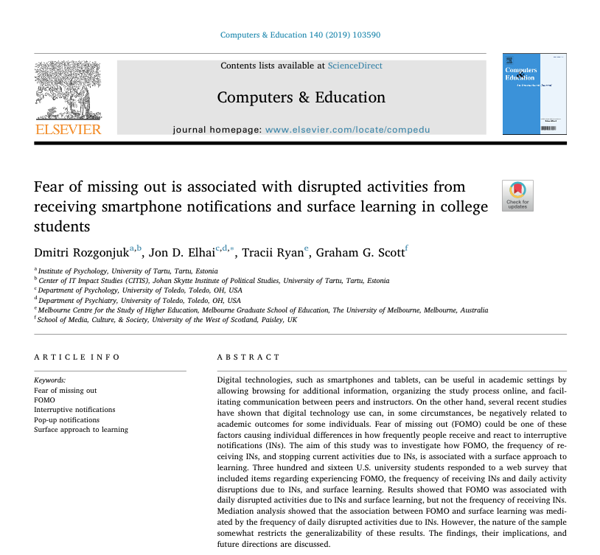Fear of missing out is associated with disrupted activities from receiving smartphone notifications and surface learning in college students
Digital technologies, such as smartphones and tablets, can be useful in academic settings by allowing browsing for additional information, organizing the study process online, and facilitating communication between peers and instructors. On the other hand, several recent studies have shown that digital technology use can, in some circumstances, be negatively related to academic outcomes for some individuals. Fear of missing out (FOMO) could be one of these factors causing individual differences in how frequently people receive and react to interruptive notifications (INs). The aim of this study was to investigate how FOMO, the frequency of receiving INs, and stopping current activities due to INs, is associated with a surface approach to learning.

